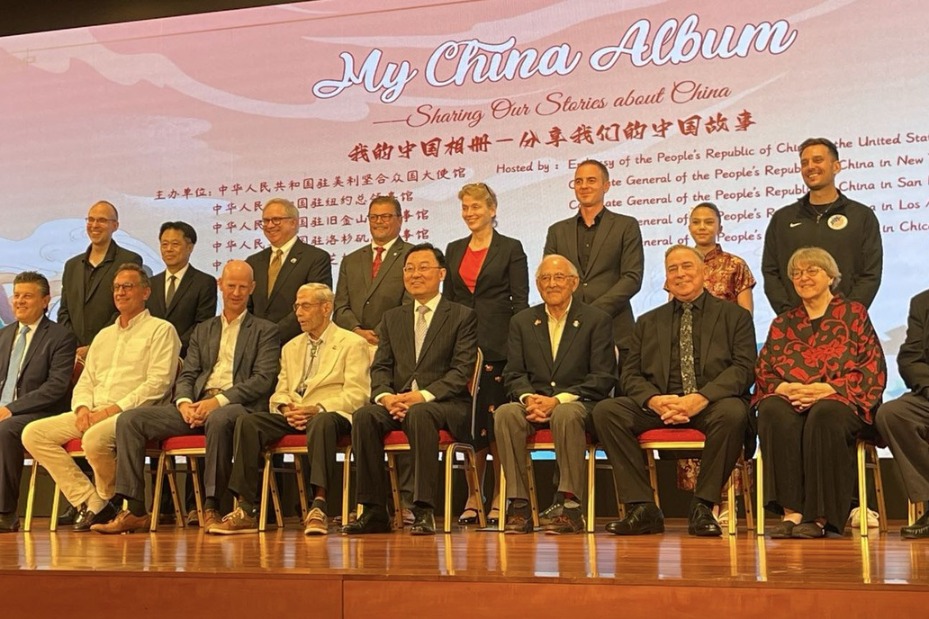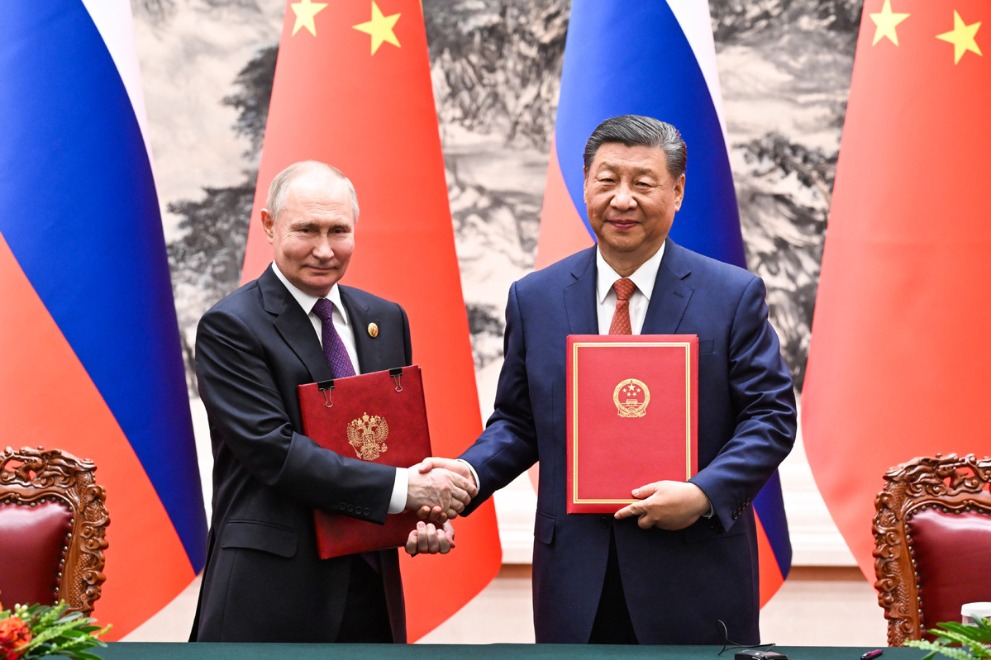TV and movie workers fear AI will drive them out of creative industry
By Barry He | China Daily Global | Updated: 2023-07-25 09:52

The television and film industry is protesting about the use of artificial intelligence in productions, which actors say poses a threat to their profession.
The Screen Actors Guild in the United States recently failed to reach an agreement with industry heads on how best to protect workers in its union. Script writers and directors say they too are troubled about advancements in the technology and its use in the business.
The use of digital clones via AI has evolved into a contentious issue in the film industry over recent years. So called digital clones are real life extras who are paid to have their entire body scanned, then duplicated on screen to produce mass crowds of people.
At just a fraction of the cost of hiring the same number of physical actors, the technology can now create unique faces and even voices with unsettling accuracy. Actors worry that the speed of progression in this field means that one day, without regulation, they may eventually be put out of business entirely.
Opposition is also beginning to show in other sectors of television and film production.
The Directors Guild of America won protection in June to prevent themselves being replaced with AI technology.
The Writers Guild of America is also currently in negotiations. In an era where free and publically available programs such as ChatGPT can write stories and poems instantaneously from mere prompts, legal battles are in full swing to prevent AI from being considered "literary" or "source" material, which is part of the legalese that credits script writers for remuneration.
Actors worry that as well as reducing their work AI will also remove them from the creative process, allowing studios to change dialogue or even create completely new scenes without the individual's consent.
However, the opportunity exists for savvy actors to monetize this innovation, licensing out their image and enabling themselves to be in two places at once. The French footballer Kylian Mbappe recently appeared in a television advert where his face was projected onto a digital clone template actor, a concoction created by a tech company in Delaware.
Perhaps more unsettling is AI's ability to bring dead actors back to life on screen. The teenage heartthrob James Dean who dominated the silver screen in the first half of the 20th century is set to make his 21st century debut in Back to Eden.
Former legends of Hollywood carry a timeless star appeal which many studios could bank on as a financial success. However, the ethics of such activity is far from crystal clear. The limits of what we could make such actors do regardless of their career choices while alive is something which still has not been established.
The battle for actors' rights so far has no conclusion in sight. Actors wish to, at the very least, be able to consent to how their image is used in the event of digital cloning. Consumers too could potentially support this plight, voting with their money and choosing to only watch films that feature authentic physical actors.
Campaigns for tighter regulation are understandable in anticipation of this powerful technology, which improves rapidly week to week. We may soon even live in an era where deceased actors are favored for work over living ones.
























